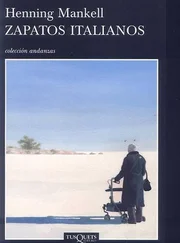'Who do you belong to? he asked Nelio.
'I don't belong to anyone.'
'Now you belong to us.'
From that moment, Nelio left his great loneliness behind. He began a life with Cosmos, Tristeza, Mandioca, Pecado, Nascimento and Alfredo Bomba. With them he shared almost everything. The only thing he kept for himself was his statue. At first Cosmos wondered why Nelio didn't sleep with the others on the cardboard boxes in the stairwell of the Ministry of Justice. Nelio told him that he had a sickness that required him to sleep in a different place every night. He said it so convincingly that Cosmos believed him. He even suggested that they should try to collect enough money to visit a curandeiro who might be able to cure this strange illness. Without hesitation, since he knew that they would never manage to find the money, Nelio replied that he had no greater wish.
Nelio took his place in the group without encroaching on anyone else. Everyone had his position to guard, and it could be weakened or elevated, although it was always Cosmos who decided, sometimes on a whim, sometimes wisely and with good judgement. But from the very beginning Nelio went his own way. First Cosmos, then the others – even, at last, Tristeza, who was slow-witted – understood that Nelio was not like anyone else. As a person, he was his own breed. He acted like the others, learning their language and their customs quickly, but he was still an outsider, though in such a manner that no one even thought to ask him why this was so.
One night Cosmos had a dream which he told to Nelio much later on, but never to the others. He dreamed that Nelio was a sun-dried person, like a fruit or a fish, that tasted better than anything else and that lasted for as long as anyone was hungry. Cosmos asked Nelio whether he could explain this dream. He asked him about it when they happened to be alone, since it wouldn't look good for him, as the leader of the group, to be asking questions. He was supposed to have all the answers. Nelio said the dream was surely a divine revelation that only Cosmos could interpret. Nelio himself did not have the power to do so; he came from the remote regions where people very seldom received divine revelations in their dreams. Cosmos was so moved by Nelio's answer that on the following Sunday he ordered the whole group to get cleaned up and accompany him to the big cathedral to attend evening prayers. But when Tristeza could no longer hold back his laughter and when Alfredo Bomba fell asleep on the stone floor of the church, they were all thrown out, and they never went back.
'God exists even in the rubbish bins,' Cosmos had shouted derisively at the church officials who had angrily expelled them. They ran as fast as they could, scattering in all directions to avoid arrest, and later they regrouped outside the theatre. Cosmos was so mad that he even forgot to give Mandioca a thrashing. And he forgave him for losing during their hasty retreat the liturgical book which Cosmos had swiped from the wide pocket of one of the dark-clad padres and then passed swiftly over to Mandioca, who had the biggest trouser pockets. For a long time afterwards Cosmos mulled over the idea of starting his own religious movement, which would be devoted exclusively to the street children. Through him the ragged bands' god, who must exist somewhere, would be reborn. But since they were heading into the hottest time of the year, he decided that the whole thing was far too strenuous, and he let the matter drop.
Cosmos recognised early on that Nelio had not come to the group in order to challenge his leadership or to seize power at some advantageous moment. At first it made him uneasy, since he had never experienced this before or even heard of such a thing. In the beginning he suspected that Nelio was deceiving him, and in secret he told Pecado and Mandioca to ask sly questions and to try to work out whether Nelio was other than the modest and reserved person he appeared to be. But at last Cosmos was convinced that Nelio was exactly the strange person he seemed to be. Nelio was nothing other than what he was. Cosmos had never met such a person before. How could someone be exactly what he was? Apart from his peculiar sickness, Nelio did not seem to have any unexpected secrets. Cosmos told Nelio about all these thoughts much later on, when he was planning, in great secrecy, to leave the group and start off on his long journey to another world. Nelio was surprised by what he heard. He had never imagined that his presence in the group could have aroused so many emotions in Cosmos. On the other hand, he had felt for a long time that the others in the group, especially Nascimento and Pecado – and later Deolinda, after she had forced her way in among them – had great difficulty accepting his presence. That was when the rumour was born that he had an unmatched ability to avoid being beaten.
Nascimento was the one who challenged him most, the aggressive Nascimento who could barely speak, who instead used his clenched fists and leaps and kicks as the language with which he described and commented upon the world he was forced to live in. He bore the name of his own origins. Everyone in the group had his own story; everyone, in spite of his youth, was a full-grown personality. And they were regarded as the most filthy but also the most respected group of street kids in the whole city. Much later Nelio came to understand that it was this respect, clothed in filthy and threadbare rags, which had so provoked the police that they decided to pound some fear into Cosmos, a fear that he would then spread to the others of the group. But the police had never succeeded, and Nelio felt as if he were living inside a roaming, jumping, dancing, laughing fortress under whose protection he and the others were invulnerable. Gradually he came to know them all, one by one, and he discovered that they were grown up even though they were kids, that they were old men even though they had scarcely reached puberty. Their stories stretched over infinite spaces of experiences, and each was a hero, a scoundrel and a victim in his own drama. Their names and their black bodies were as if celebrated in song.
Mandioca, the tall boy with the big feet and the crooked little finger on his left hand, had the biggest trouser pockets, and he had onions and tomatoes growing in them. The earth which he poured into his pockets and watered each morning was constantly dribbling out around him. And it was his vow, his yearning, to return some day to the village he could not remember, but which existed in the depths of his consciousness – the village his family had fled from when the warning came that the bandits were on their way. They had travelled by bus, they were many in number, but when they thought they had reached safety, the attack had come suddenly. The bus was set on fire, and Mandioca was flung into a thicket where later, half dead and dehydrated, he was found by several foreign nuns who rattled off a litany of prayers and then took him along to an orphanage in the city. When he had learned to walk – and it was his opinion that the only reason he wanted to walk properly was to be able to run away – he set off for his home in the countryside. But he never got farther than to the centre of the city and he had been living on the streets since he was four. Different charitable organisations based in all parts of the world and people of good will would often take him to orphanages, but he always ran away, back to the streets, since he knew that it was from there that he would one day start his journey home. He did not want to bathe or sleep in a bed or wear clean clothes. He wanted big trouser pockets to hold the earth that was just as important to him as his own blood. In every person he met on the streets he looked for some reminder of his father or mother, without remembering what they actually looked like. He searched for his siblings, his brothers and sisters, his uncles and aunts, his cousins and his neighbours, and for those he had never seen and didn't even know whether they existed at all. Often he would sink into a furious grief. But just as often he would balance on the stone walls adorned with lions outside the Ministry of Justice and dance to the music that only he could hear.
Читать дальше












